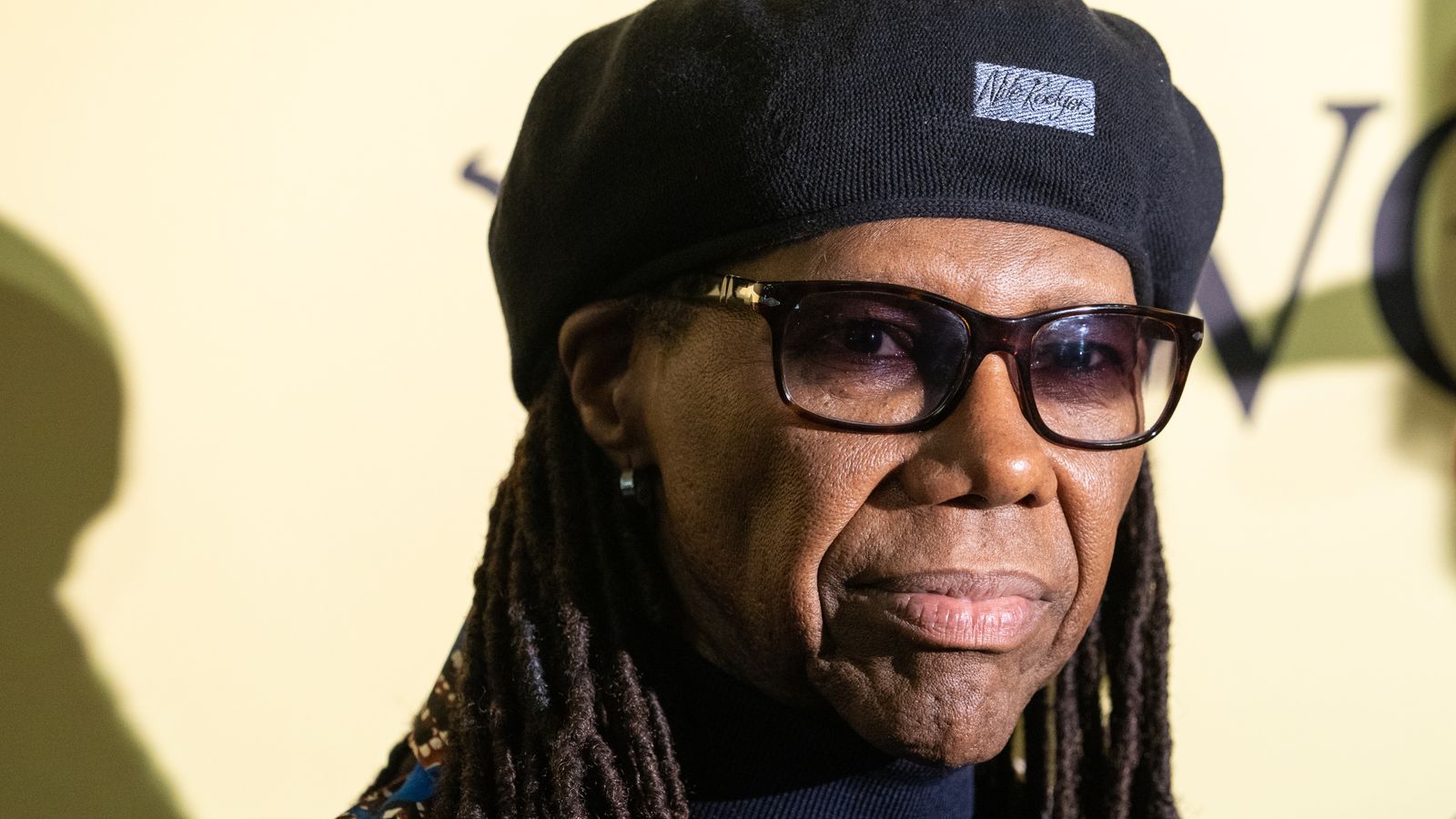The last 18 months may have decimated the live scene, but many people have sought comfort, distraction and even solace from recorded music – making the Ivor Novello Awards, which celebrate songwriting, arguably more important than ever.
Harry Styles, Lianne La Havas, Celeste, Goldfrapp and Dave were among the winners at this year’s ceremony, which was held in London.
Stars on the red carpet told Sky News that the prestigious awards, which launched in 1956, are among the most cherished by artists.
Chic frontman and prolific songwriter and producer Nile Rodgers attended the ceremony with Richie Sambora from rock band Bon Jovi, who collected the special international award.
“To the artist, to the writer, the composer, this is as high as it gets,” said Rodgers. “The first time I received an award here I was almost like a child. I’ve gotten so many awards throughout my life but this was the big one.”
Sambora said he believes songwriting can be under-appreciated in an industry that recognises performers, who are not always one and the same.
“Everybody needs a great song so they can go out and play live to the people and entertain and do that; you need a great song, something that touches somebody in the heart,” he said.
“You know, [Bon Jovi’s] Livin’ On A Prayer, part of that song is something that happened to me – my Uncle Sal he got laid off at the docks, my dad was laid off, so there’s a time period of authenticity of a story.
“And I think that’s what we’re here to celebrate, all the girls and guys and men and women that try real hard with a lot of courage – because songwriting is harder than it looks.”
Like everyone in the past 18 months, songwriters have been forced by the pandemic to work in a different way.
For some, such as Ivors nominee MNEK – best known for the 2020 hit single Head & Heart with Joel Corry – the new measures that have had to be adopted in order to collaborate have become useful tools.
“I’ve been able to do it over Zoom, I’ve been able to do it over text, over Whatsapp, and that’s a cool process as well,” he said. “I think it’s let me know that I can be a versatile songwriter in a lot of ways. It lets me do more, which is actually all I could ever want.”
Roland Orzabal, from Tears for Fears – who were honoured with the award for outstanding song collection – said he can also see the benefits of the last 18 months.
“The pandemic itself has spawned a massive amount of creativity because we’ve all been locked up,” he said. “We’ve been working on [the latest] album for seven years, but we finished it during lockdown because we had the space and felt the need, you know, so in that sense I think it’ll have spurred more creativity.
“And also, I think during a pandemic, especially during lockdown, you realise what’s kind of valuable to you and I think that will spur more songwriting and more creativity as well.”
Subscribe to the Backstage podcast on Apple Podcasts, Google Podcasts, Spotify, Spreaker
But it’s not just the logistics of songwriting that have been impacted by COVID-19.
Emile Sande said she thinks we will see certain different styles emerging out of what has been a very difficult time for most.
“I just have a prediction there’s going to be a little more rebellious music coming out now,” she said. “Everything’s been channelled into the music.
“I hope there’s a punk resurgence, or just something where everyone’s like, we don’t know what’s going to happen tomorrow, we don’t know if we’re going to be asked to stay inside again, so why don’t we just make what we feel we need to. So I think it’s going to get a lot more experimental moving forward.”
But Rodgers, who has been writing songs since the 1970s, thinks musicians are naturally forward-looking, so the pandemic will have a different impact.
“What songwriters typically do is we don’t write just about the world that we see, we write about the world that we want to see. And what’s been happening, at least with the composers I’ve been working with, is that we’ve been very optimistic, we’ve been talking about the future in our lyrics, we’ve been talking about the future in our grooves.
“So our music feels like not the music of now, it feels like the music of tomorrow.”






















